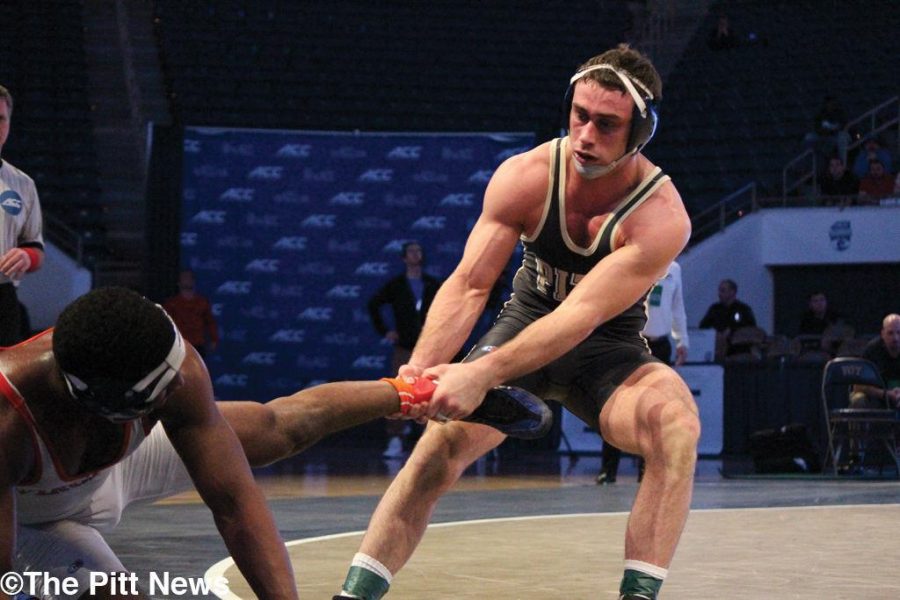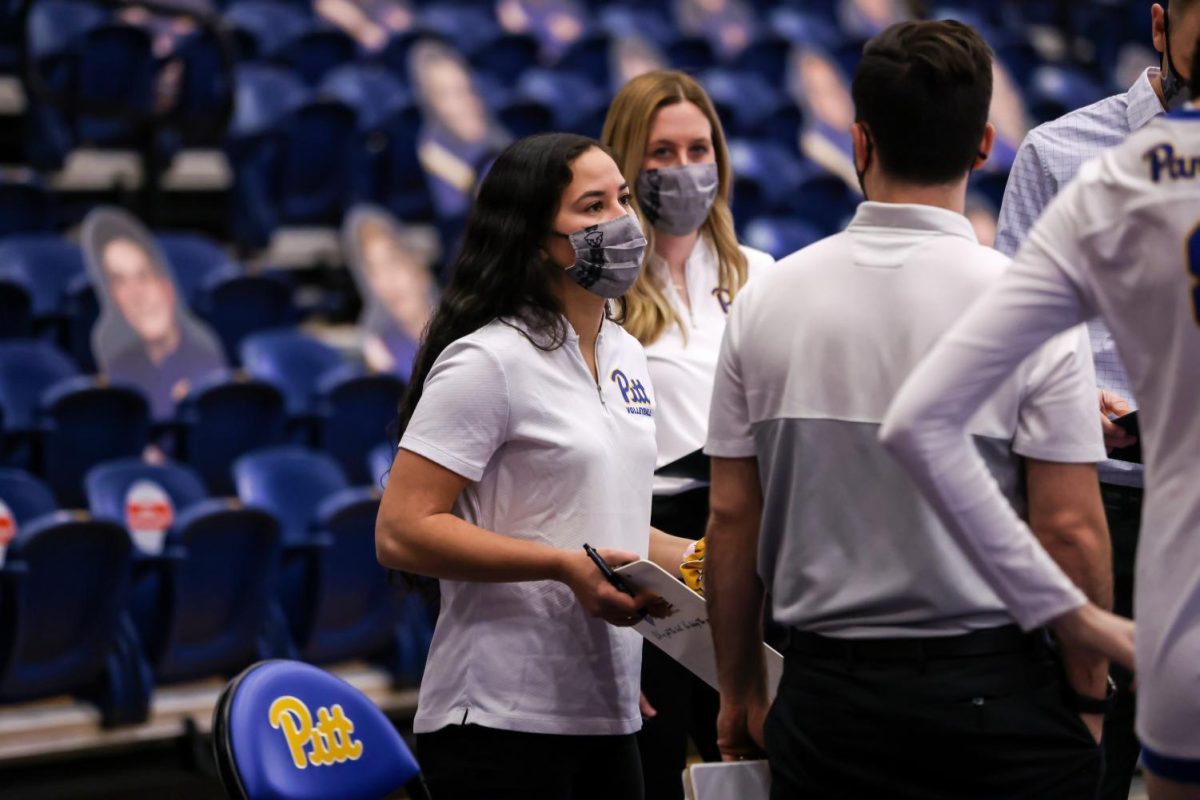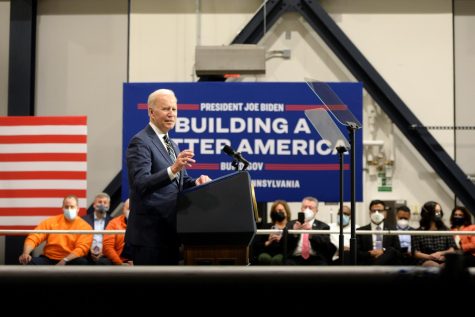Wilps recounts controversial championship finish
April 1, 2015
Less than six inches separated Tyler Wilps from the top spot of the podium at the NCAA Wrestling Championships on March 21.
Wilps, a redshirt senior, only needed to position his hands about six inches further apart on his opponent to secure a national championship. Instead, he fell to Penn State’s Matt Brown in a highly contested match that toppled down to the eventful third period of the 174-pound final.
But Wilps had to fight just to reach that final period at the Scottrade Center in St. Louis.
The No. 8 seed Wilps won four matches before wrestling in the national finals, including a huge upset over No. 1 Robert Kokesh of Nebraska.
“It was a surreal experience,” Wilps said. “It’s every wrestler’s dream to get to the national finals.”
Yet no wrestler would ever dream up the events that unfolded during Wilps’ final match with Brown.
After a scoreless first period, Wilps escaped after battling for nearly 30 seconds from the bottom position, giving him a 1-0 lead in the second. From the neutral position, neither wrestler created any scoring opportunities, and Wilps carried the narrow lead into the third and final period.
That last period of Wilps’ collegiate career will likely stay with him for years.
After an early escape knotted up the score at 1-1, Brown gained the lead with a takedown with 1:02 remaining on the clock. Pitt head coach Jason Peters challenged the takedown, the first of many coaches’ challenges and official reviews during the final minute of regulation.
With a little more than a minute remaining, Wilps needed an escape and another takedown to regain the lead. Twenty seconds later, he started clawing back — or so he thought.
After an escape call on the mat made the score 3-2, Penn State head coach Cael Sanderson challenged the escape and won, reverting the score back to 3-1.
Remarkably, within a 20-second span, Wilps made grabbed another escape and takedown to regain the lead.
“I completely lost myself in that moment,” he said. “My body just did what I’ve trained it to do for the last five years. I knew I was going to get the takedown.”
After the takedown, only 20 seconds remained between Wilps and a national title. But while attempting to run down the clock with his 4-3 lead, controversy struck not once, but twice.
With just three seconds remaining, the referee hit Wilps with his second stalling warning — a violation — awarding a point to Brown and knotting the score at 4-4.
This call — the first of two controversial deciding calls — was based on the referee’s interpretation that Wilps was not acting offensively and working up Brown’s body while holding on to his leg.
Not everyone interpreted the rule this way.
“I was disappointed in the interpretation of the referee’s call,” Peters said. “The rule states that if you bring the [opponent’s] foot up off the mat, it’s not stalling. But for whatever reason, the referee felt it was.”
Despite the controversial stalling call, it appeared that Wilps would still at least get a chance to claim the title in overtime.
“I think we all felt that overtime was coming,” Peters said.
But that wasn’t the case.
In the final three seconds, Wilps, in the top position, only needed to hold on tight to force overtime. Initially, it appeared that he succeeded.
However, after a review, the referees determined that, with one second remaining on the clock, Wilps committed a locked hands violation, awarding a point and a 5-4 victory to Brown.
During those crazy final seconds, Wilps said he was sure he had won and that Brown was “baiting,” a technical violation that forces a wrestler’s opponent to try and lock hands.
“Because it was so obvious for me, I thought that everyone knew what happened,” Wilps said. “I assumed that he was going to get a penalty point, and I thought I won the match.”
Controversy surrounded whether or not the violation had occurred with time still on the clock, but Peters’ challenge failed.
Still, despite a controversial and memorable finish to his wrestling career, Wilps said he is proud of what he accomplished in his senior year.
“It’s tough. I did pretty much everything I could do, for what I could control,” Wilps said. “I felt cheated a little bit. But I was just thankful to be in the position to wrestle for a national title.”








